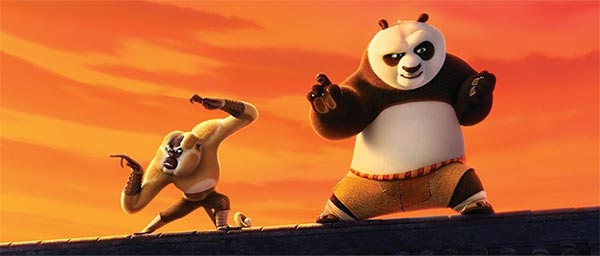
Dialogue with Teng Huatao
Q: Some say that Kung Fu Panda 3 may be filled with Chinese elements, but it is still Americanized. Do you agree?
A: Of course. The principle that followed throughout discussion between us is that we cannot make Kung Fu Panda into a Chinese film, because it is a film for the world to see. We had to meet the demands of our US partners. As long as there weren't any principle errors, we contributed our Chinese elements, but we can't turn it into a Chinese film.
Q: Did you discover a major gap between how animation features are made in US and China when you were at DreamWorks?
A: The gap is big, and not something that can be filled in a short period. But as long as we are working together on big productions, I believe things will get better in the future. I also saw Monkey King: Hero is Back (a domestic dark horse animated feature released in 2015), so we can catch up to speed, but no matter how high the ticket sales are in China, if we want to tell our stories for the world, the world must understand and like our story. There's a difference between the two.
Q: There are more and more Sino-US co-productions, and we are getting a bigger share of the pie when it comes to box office accounts. As the Chinese counterpart, how can we benefit?
A: The Chinese team participated more and at a deeper level for Kung Fu Panda 3. This is a great learning opportunity to work with the best animation team in the world, to learn how they do things, and how they fine-tune the details.
Q: Will you direct your own animated feature in the future?
A: Yes, but I may not have the time. But if I do, it has to be a story that I like myself.


















































